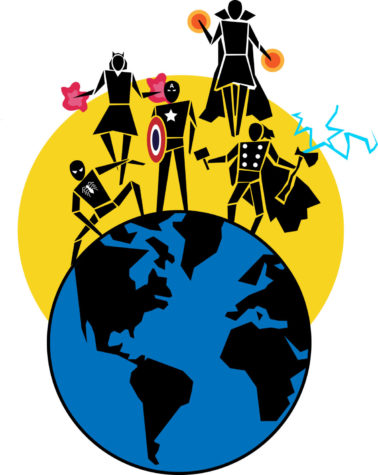ARCADE | Modern cinematic universes: How worldbuilding lost its charm
In the art of storytelling, worldbuilding is perhaps one of our most essential tools. It allows a writer to tell two stories: the main plotline and the tale of the world it is set in. Similar to the components of a meal, the actual food is the primary storyline, whereas the seasoning and spices add context and nuance to the experience.
Worldbuilding is a labor of love — or at least, it should be. In the entertainment industry, where box office revenue matters more than the movies it came from, film producers will constantly reuse and exploit any idea that has had previous success. To find out where it went wrong for worldbuilding, two words say it all: “cinematic universe.”
There is nothing wrong with cinematic universes. In fact, they have been around for over 60 years. In series such as the James Bond films and Toho’s Godzilla films, there are opportunities to build upon a story with the same passion and care that was utilized from the start. However, it all comes crashing down when the idea of a cinematic universe is reduced to a marketing strategy.
In 2005, Paramount Pictures made a distribution deal with Marvel Comics to produce films based on comic book characters the company owned at the time. Three years later, Marvel Studios released the box office hit “Iron Man,” which grossed over $585 million worldwide. “Iron Man” was only the first of a film series in a project known as the “Marvel Cinematic Universe.”
For over a decade, the MCU has taken the world by storm, gaining $26.6 billion worldwide as of June 2022. As a subsidiary of The Walt Disney Company, Marvel Studios has done wonders for its parent company with each new product raking in even more money. Through the MCU, Disney found a genius marketing strategy: affiliation with success.

Even when a lackluster movie like “Avengers: Age of Ultron” is released, it will almost always be a box office hit. Grossing over $1.3 billion worldwide, the sequel to Marvel’s “The Avengers” was riddled with unresolved plot holes and unnecessary storylines. The secret to success is simple: a movie must connect to previous box office hits.
Why worry about the quality of a film or television series when one can just tie it to a more successful product? This is precisely why worldbuilding is such an efficient strategy for churning out profitable media — often at the cost of the quality of the writing itself.
With the MCU’s rising profits, the film industry was quick to jump on the bandwagon of worldbuilding, introducing new cinematic universes for major franchises like Star Wars and J. R. R. Tolkien’s legendarium. Once again, the quality of one movie doesn’t really matter in the long run; that’s the point. The purpose of the modern cinematic universe is to guarantee marketability. A crowd will likely be drawn in when the selling point for a movie is its affiliation with a franchise they already enjoy.
As stated before, worldbuilding can be thought of as a meal. You can add all the expensive seasonings and spices you want to a meal and advertise it as a relative of a meal you already loved. But, at the end of the day, the dish’s quality may suffer.
The quality of a meal is greater than the sum of its parts, but it does rely on its seasoning, spices and garnishes. Similarly, worldbuilding projects rely on each component to be as good as they are — or, in the case of modern cinematic universes, as soulless as they have become.
The idea of expanding successful franchises is perfectly fine, but it must be done with care. Otherwise, all you’ll get are new characters pasted onto an overused blueprint, while the movie is paraded as a groundbreaking film. And, you could end up with an exploited piece of media and new lore that nobody asked for.
Nowadays, cinematic universes are seemingly inevitable. Unfortunately, time is running out. You can make product after product, but at the end of the day, all you have is a saturated market. All that mattered was the tagline, and the art has suffered.
There will come a time when cinematic universes are no longer profitable, and the idea of worldbuilding will be tossed into the wastebasket. The love of the craft will be a thing of the past, as it seems it has already become. At the end of the road, all we can really ask ourselves is: which art form is next on the chopping block?
Your donation will support the student journalists of Tulane University. Your contribution will allow us to purchase equipment and cover our annual website hosting costs.



